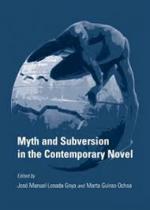Citation:

Abstract:
The aim of this study is to discuss demythification and the subversion of myth in
Christa Wolf’s Cassandra Project (1983) and Medea. Stimmen (1996). Wolf
considers literature as an archaeological project, as a quest for the truth and the
“blind spots” in personal and social history. On this quest she turns her attention to
Greek mythology. A myth is not a context, but a frame. It is a supertemporal,
multidimensional phenomenon, which allows a writer to move into free spaces.
Thus, Wolf’s versions revise the myth in some fundamental points. Her main
concern is to shed light on the manipulation of truth and the discrimination of the
stranger. The author does not write, however, against the myth per se. On the one
hand she points out the close connection between myth and politics and on the
other hand she tries to explore the potential of myths in order to understand the
present situation better and to look for livable alternatives or yet untried patterns.
The reminiscence on the origins of the alienation offers a matrix for the
explanation of today’s conditions and at the same time permits a glimpse into the
future: “the escape backwards as an escape forwards”.

